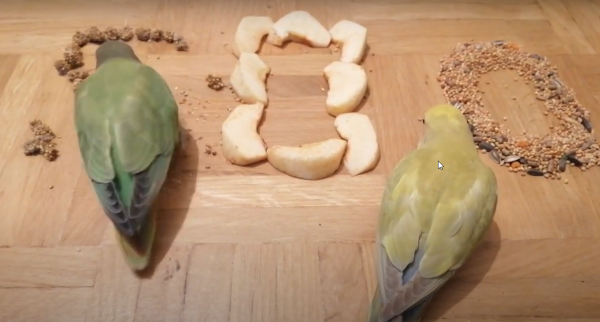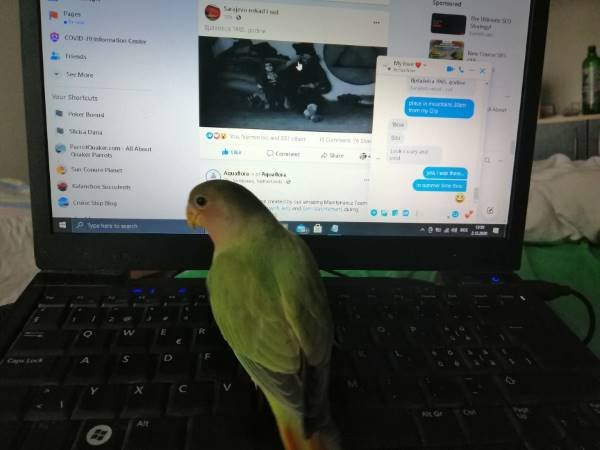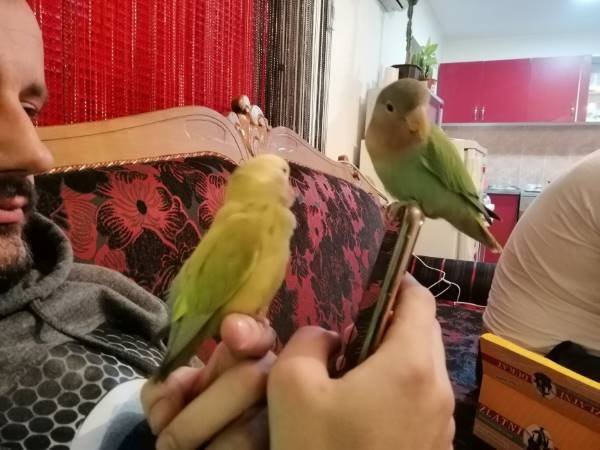Generally, most owners know what to feed their lovebirds which is very important. As a lovebird owner, you start listing seeds to fruits when asked about what to feed a Fischer’s lovebird. However, it is more important to know why the diet you feed your lovebird is important for them so that you don’t ignorantly deprive them of essential nutrients in the future.
This article will talk about Fischer’s lovebird diet, how these nutrients are helpful to lovebirds, what to feed them at certain stages of their lives, and what you should never feed your birds.
What to Feed Fischer’s Lovebird
Fischer’s lovebirds should not be fed just for survival. They need a healthy diet to live long and stay healthy. Just like you, your bird has an immune system that should be taken care of to combat unfriendly microorganisms that can cause avian infectious diseases. These nutrients can be given to your lovebirds through a healthy diet which includes:
Seeds
Most likely, your birds will prefer seeds to anything, just as kids prefer to eat candy and chocolates to organic foods. Seeds are palatable and good too, but it contains only a few of the nutrients required by the birds. In the case of wild lovebirds, they have access to various types of seeds in the wild. When it comes to commercial seeds, they usually contain a mixture of 4-10 seeds that contain fat and carbohydrates only, which can only result in malnutrition.

Lovebirds typically prefer Millets and sunflower seeds, while owners feed them millet spray and branch or honey sticks with the same seeds glued together by sugar and honey. This does not mean seeds are bad for lovebirds, but they should not be fed as the major and only diet. You can offer them safe seeds like millet, Broccoli raab, sunflower, canary, fenugreek, and so on, but remember to do so moderately. You can as well mix these seeds to give them varieties like those in the wild.
Pellets
Pellets are created to contain the necessary nutrients needed by birds. That is why it is a recommended diet for birds with fruits and vegetables. Although not every manufacturer produces pellets with essential nutrients, it is important to look out for pellets with the right amount of nutrients.
However, some lovebirds do not acknowledge pellets as a diet. Some even go as far as starving themselves instead of eating pellets, especially the adult birds who have been fed on seeds and grains. It is usually not easy to make adult birds learn how to eat pellets, which is why you should start chicks on pellets early. In case all you have are adult lovebirds, you can consult a vet for useful tips on making your birds feed on pellets.
Grains
Just like seeds, grains do not contain essential nutrients like vitamins and minerals, so they also should be fed moderately to lovebirds. The birds might prefer to take more grains, but if you want healthy lovebirds with a prolonged lifespan, you should feed them moderate grains. Safe grains to feed your lovebirds are: Amaranth, Quinoa, Barley, Rye, Spelt, Brown cooked rice, Groats, Teff, Kamut’s, Wheat, Oats, Maize, Oats, and so on.
Nuts
This is another palatable feed loved by lovebirds. And one of those they love to have in large quantities. However, they contain a lot of fats, so they should be fed moderately to the birds. Also, when feeding your lovebirds nuts, feed them only unsalted nuts. Nuts can also be used as rewards when training your lovebirds to do amazing tricks like other pets. Before you do that, make sure the nuts are crushed up. The safe nuts to feed your lovebirds in moderate quantities include; Hazelnuts, Macadamia, Cashew, Almond, Pecan, Brazilnuts, Pine nuts, Walnuts, and Pistachios.

However, the Almond nut is the healthiest of all. It contains more proteins than other nuts, is rich in fiber, and has 14 grams of fat per ounce.
Fruits
Because nuts, seeds, and grains do not have enough nutrients, it is advised that they are not served as major diets, but they should be complemented with fruits and vegetables. Fruits contain enough vitamins that seeds and the likes lack. Therefore, by serving your lovebirds fruits, you can ensure they do not lack the necessary amount of vitamins they need. However, you still need to be careful as fruits contain a lot of sugar, so they should be served moderately as well.
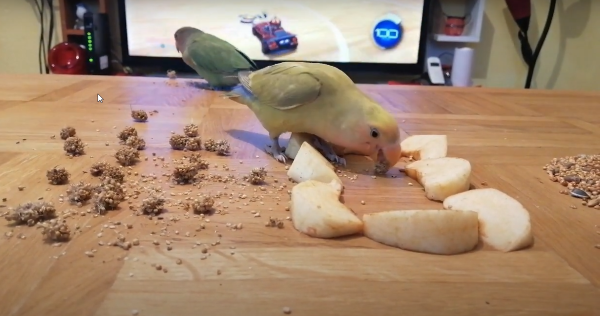
It is important to note that some fruits are acidic. If these fruits are specially fed to the birds in large quantities, they can make them fall sick. Also, some fruits’ seeds or pits can be very toxic, so always remember to remove them before feeding the birds.
List of fruits that can be given to Fisher’s lovebird include:
Acai berry, Apple, Apricot, Banana (remove the skin), Blackberry, Blood orange (give in moderation), Canary melon, Grape, Gooseberry, Hami melon, Kaki, Kiwi, Korean melon, Lychee, Mango, Mulberry, Nectarine, Orange, papaya, palm fruit, pear, plum, Raisin, watermelon, strawberry, Tamarillo, and many others.
List of acidic fruits that should be given moderately include:
Blood orange, Orange, Grapefruit, Tamarillo, Pomelo, Pineapple, Orange, and Mandarin Orange.
List of fruits that should not be served with seeds or pits are:
Apple, nectarine, mango, plums, cherry, cranberries, pear, hawthorn berry, and peach.
List of fruits that should be peeled before serving:
Banana, Lychee, kaki, kiwi, mangosteen, nectarine, passion fruit, plantain (green ones should be cooked)
Dates and figs should be served fresh and dried.
Vegetables
Just like fruits, vegetables are a good source of vitamins. The good news is they contain little to no sugar so that you can give veggies to your lovebirds in a reasonable quantity. Some vegetables need to be cooked before serving, while some can be served cooked or raw. Some birds do not like any type of vegetable raw. If you own such a lovebird, you should serve it cooked. Ensure the cooked vegetable is cooked before serving; you do not want to burn your feathered friend’s throat. Also, some vegetables should be served moderately.
List of vegetables that are safe for lovebirds:
Acorn squash, artichoke, bamboo, green beetroot, broccoli, butter lettuce, carrot, cauliflower, chili pepper, Chinese cabbage, cucumber, eggplant, green beans, green leaf lettuce, lady’s finger, peas, pumpkin, radish, spinach, turnip, yam, and so on.
List of vegetables that should be cooked before serving:
Sweet potatoes and yams should be cooked because raw yams are toxic for birds.
List of vegetables that should be served moderately:
Fennel and spinach should be served moderately to lovebirds.
Cuttlefish bone
Cuttlefish is a type of fish found in oceans and one that is rich in calcium carbonate. As calcium makes your bones strong as a human, the same goes for your lovebirds. Cuttlebone contains about 85% of calcium carbonate and other trace elements needed by humans and birds. Elements such as iron, zinc, potassium, and copper.
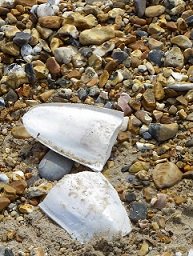
The cuttlebone has a rough texture, so it should be hung in the cage with the soft side facing the bird to make chewing easy for the bird. Another importance of a cuttlebone is that it makes the beak trimmed and sharp.
How often Fischer’s Lovebirds should drink water
Lovebirds need a lot of water to aid their digestion and keep them hydrated. They need at least 5 ounces of water in a day to stay healthy. It would help if you were careful of the water you give them to drink and keep their water bowl clean to avoid making it a home for harmful microorganisms.
What you should never feed your Lovebirds
Certain foods look normal but are forbidden and toxic for birds. One of them is avocado. It might come as a surprise since avocado is a vegetable, and vegetables are suitable for lovebirds. The reason is that Avocado plant leaves contain persin, which can be harmful to birds. Other things you should not feed your birds are chocolate, salt, onions, garlic, apple seeds, fats, and fruit pits.
Breeding Diet
Lovebirds should be fed the necessary nutrients like every other day during the breeding period. However, nutritional feed should be increased, especially food rich in calcium, as it is vital for the hen while laying eggs. Feeding hens dietary supplements during the breeding period is not a bad idea, as it is needed to replenish the nutrients they lose during this period.
Diet for Chicks
After the hen must have helped the chicks become independent, you need to take them out of the nest box and wean them slowly from eating seeds to pellets. Chicks are the easiest to start on a pelleted diet, unlike adults. Since pellets are strongly recommended for the lovebirds, it is only better to get familiar with pellets early.

Generally, birds, especially the adult birds, may prefer to eat a particular food to the other, since you know the importance of each type of food to them, you should always look for a means to give them a balanced diet to make them stay healthy. You can always seek a bird enthusiast’s help for tips on how to make things work.

